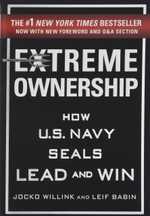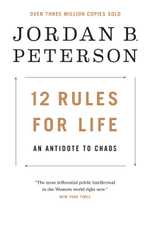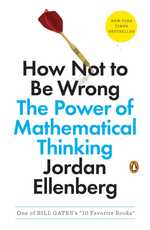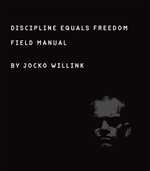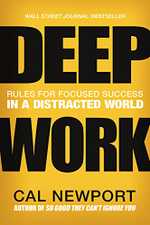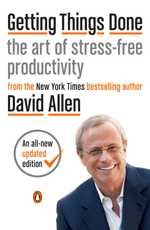Library
If you want to build up, you have to read. There are a lot of interesting people in the world who share a lot of interesting knowledge, and reading their books lets you pick their brains. In fact, most ideas in this blog aren't my own, but are the things I read, applied, adapted, and found worthy.
This list is dynamic: I'll be adding and modifying books here as I read them, so check it back again from time to time if you follow this blog!
For all the books here, I recommend reading actual books, and not audio versions. This is because you need to sit down, focus, and digest these books. They're not easy reads. I call this "Deep Reading."
Probably the best book I ever read about leadership. The idea is simple, but the applications are hard and not always intuitive. My main take on this is: even if everything isn't your fault, you're better off acting like it is. I'm also a regular listener to Jocko Podcast (especially the Q/A episodes), which has TONS of great wisdom.
This book is not easy to read since it talks about very complicated topics and ideas. I took a lot more time with this book and generated many bookmarks. I had to re-read many paragraphs. But it was worth every single minute - many things that I didn't understand before made sense to me after reading this book. What I liked about this book and the author, is that it digests very complicated ideas and understandably presents them. I wish this book were available earlier since I could have used these ideas!
Great book about how to process mathematical facts and statistics. How I analyze news and facts has completely changed after I read this book, and I learned how numbers could be twisted to fit your desired narrative.
Extreme Ownership talks about leadership. This book is about leading yourself; having discipline over various aspects of your life. The premise is simple: if you have discipline and get things done, you'll have the freedom to enjoy things you gain as a result of that discipline.
A fantastic book that talks about the value of focused work and how to get there. This book resonated with me, because I always believed that the number of hours you work doesn't matter if those hours are not productive - rather than caring about much I worked, I counted how much I got done and/or how much I learned.
I became interested in getting organized when I was moving from apartment to apartment, and I didn't have a grasp of where my things are and what's important. Getting Things Done (GTD) is probably one of the most popular and "battle-tested" organization systems out there, so definitely give it a shot. I don't follow it 100%, and I wouldn't expect anyone to do so, but it's worth to develop a personal system based on this.
A great book which talks about the importance and impact of habits and how to build them. Habits are crucial for building up because you fall back on them when you're tired. It's easier to build a good habit, rather than to force yourself to do the right thing every time.
A more practical guide on how to build good habits, and how to avoid bad habits. I recommend reading this after "The Power of Habit".
This book dives into the science of why we have emotions, and how we can master them. EQ matters a lot when you work with people, and I believe you can practice to improve it. I got a lot of insights about why I felt certain things, and how I should handle that in the best way.
I read this book a long time ago, and I remember that after applying one of the principles I learned in this book, I was very fascinated by how it seemed to have worked like magic. Just like emotional intelligence, negotiation skills can also be mastered, and this book is a great introduction.
Similar to what I said above - a great book about how to have hard conversations with people.
After you get past no, you need to get to yes! I believe this book was written before Getting Past No, but I read it afterward. Note that the three books about negotiations I mentioned here have common authors, so you can treat these books as one big guide for negotiation.
This book provides a good overview of what does it mean to run a business, and gives you directions to learn further about the business world - highly recommended if you don't know where to start or to ensure that you don't have gaps in your knowledge.
Peter Thiel is a controversial figure, but I kept an open mind and was surprised by how many unintuitive ideas this book has. There are many insights into how business is run in Silicon Valley. The book also contains interesting points about macroeconomic issues, such as monopoly and competition.
Digital Minimalism talks about how to prevent yourself from being distracted by technology. Hooked talks about how to build addictive products. It peeks into the "other side" of the equation and teaches you how to create addictive products.
Upcoming
Upcoming
Upcoming
Upcoming
Upcoming
Upcoming
